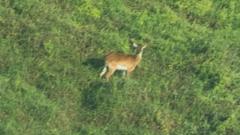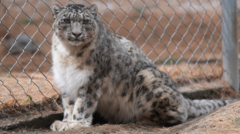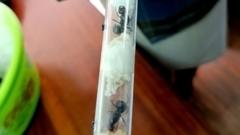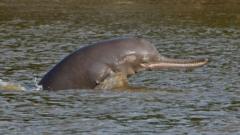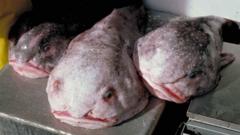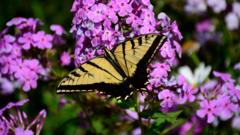The release of over 1,300 tiny snails marks a significant milestone in the conservation of two critically endangered Desertas Island snail species, believed extinct for a century.
1,329 Critically Endangered Snails Released Back into the Wild
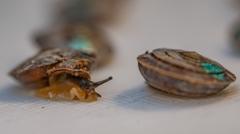
1,329 Critically Endangered Snails Released Back into the Wild
Chester Zoo leads successful conservation effort to revive extinct land snail species
More than 1,300 pea-sized snails, previously thought extinct, have been released on a remote Atlantic island as part of a successful conservation initiative led by Chester Zoo. These critically endangered land snails from Desertas Island, close to Madeira, were bred in captivity after a small population of 200 was discovered on rocky cliffs during conservation expeditions from 2012 to 2017.
Initially believed to be eradicated due to invasive species such as rats, mice, and goats, these tiny molluscs were taken to zoos in the UK and France, including Chester Zoo. From there, 60 specimens were nurtured in specially designed habitat tanks, allowing for successful breeding.
The newly released 1,329 snail offspring were marked with non-toxic color-coded dots that allow conservationists to track their dispersal, growth, and survival in their new habitat. "This will provide invaluable data on their adaptation to the environment," shared Dinarte Teixeira, a conservation biologist involved in the project.
A newly restored refuge on Bugio, a neighboring island within the Ilhas Desertas archipelago, has been established as an ideal habitat free from invasive species. Gerardo Garcia from Chester Zoo hailed the release as “a major step in a species recovery plan,” adding that more snails could follow if the initial reintroduction proves successful.
Heather Prince from Chester Zoo emphasized the ecological significance of these snails, stating that they play a crucial role in their habitat by breaking down organic matter and enriching the soil, which in turn supports plant growth. This release serves not only as a beacon of hope for the species but also underscores the critical importance of often-overlooked small creatures in maintaining a balanced ecosystem.
Initially believed to be eradicated due to invasive species such as rats, mice, and goats, these tiny molluscs were taken to zoos in the UK and France, including Chester Zoo. From there, 60 specimens were nurtured in specially designed habitat tanks, allowing for successful breeding.
The newly released 1,329 snail offspring were marked with non-toxic color-coded dots that allow conservationists to track their dispersal, growth, and survival in their new habitat. "This will provide invaluable data on their adaptation to the environment," shared Dinarte Teixeira, a conservation biologist involved in the project.
A newly restored refuge on Bugio, a neighboring island within the Ilhas Desertas archipelago, has been established as an ideal habitat free from invasive species. Gerardo Garcia from Chester Zoo hailed the release as “a major step in a species recovery plan,” adding that more snails could follow if the initial reintroduction proves successful.
Heather Prince from Chester Zoo emphasized the ecological significance of these snails, stating that they play a crucial role in their habitat by breaking down organic matter and enriching the soil, which in turn supports plant growth. This release serves not only as a beacon of hope for the species but also underscores the critical importance of often-overlooked small creatures in maintaining a balanced ecosystem.






